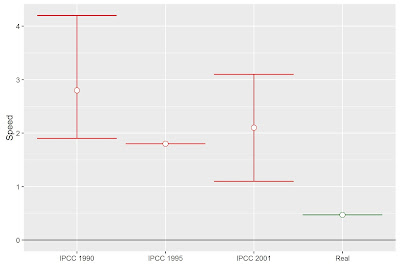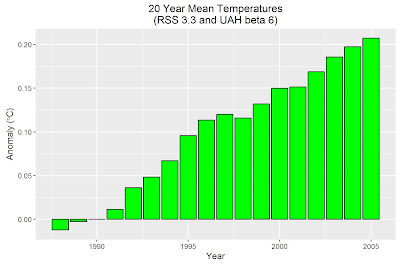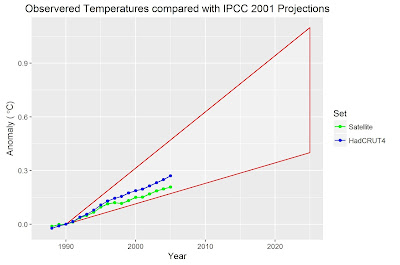It appears, then, that the Eatanswill people, like the people of many other small towns, considered themselves of the utmost and most mighty importance, and that every man in Eatanswill, conscious of the weight that attached to his example, felt himself bound to unite, heart and soul, with one of the two great parties that divided the town—the Blues and the Buffs. Now the Blues lost no opportunity of opposing the Buffs, and the Buffs lost no opportunity of opposing the Blues; and the consequence was, that whenever the Buffs and Blues met together at public meeting, town-hall, fair, or market, disputes and high words arose between them.
Disclaimer
This is going to be a chaotic outpouring of some of my thoughts on tomorrow's referendum. It isn't going to change anyone's mind - it probably won't even be read - it's simply me getting somethings out of my system.
How I'm Voting
I will be voting for the UK to remain in the EU. There was never any real doubt in my mind on this and nothing in the so called debate of the last few months has given me any reason to change my mind. The fact is that I have always considered myself to be a European. I'm proud to be English, but proud that England is part of the United Kingdom, and proud that the UK is part of the European Union. I feel that unity is better than division, and fear that leaving the EU will be very divisive and only lead to more division.
None of this means that I think everything England, the United Kingdom, or the European Union does is for the best, just that it's better to be part of something bigger than yourself.
But whilst I hope that we will remain in the EU, I fear that whichever side wins, the loser will be democracy, the UK and the EU.
About the Referendum
This referendum is and has always been a bad idea. There are times when a referendum makes sense. If a party wants to take an action, such as leaving the EU, that will have profound effects on the country it's fair that it should ask the people for a mandate via a referendum.. But this is not such a referendum. No mainstream party wants to leave the EU. David Cameron doesn't want to leave the EU - the only reason for the referendum was as a sop to elements of his party that were threatened by UKIP. So we have the Prime Minister, a year after winning an election, asking the country if he should do something he doesn't want to do, and has no need to do.
It's difficult to have a referendum on our future as a nation without it becoming very divisive and bitter. It's like a civil war - you are not fighting an enemy, you are fighting your own country. It's brother against brother, fathers killing sons, sons killing fathers. The problem is whatever the outcome the wounds will still be there, and worse may follow.
To go or not to go, that is not the question
With these dissensions it is almost superfluous to say that everything in Eatanswill was made a party question. If the Buffs proposed to new skylight the market-place, the Blues got up public meetings, and denounced the proceeding; if the Blues proposed the erection of an additional pump in the High Street, the Buffs rose as one man and stood aghast at the enormity. There were Blue shops and Buff shops, Blue inns and Buff inns—there was a Blue aisle and a Buff aisle in the very church itself.
One of the problems with this vote is that the question being asked is very simplistic, just the two options Remain a member of the European Union
or Leave the European Union
,
but the actual question is much more nuanced than that.
I think it was the leave supporters who were very insistent that the question should be very simple, but the result is that no-one knows what a leave vote actually means.
What type of brexit will we get?
A vote for Remain at least is straightforward - nothing changes, (except for all the bitterness, recriminations). But a vote to leave could mean anything, and anyone voting to leave won't get to make the decision of which sort of exit will be negotiated.
There are two questions regarding a leave vote: The first is how much do we actually leave. A vote for leave won't suddenly mean we are no longer a member of the EU, there will have to be years of negotiation before it's settled, and whoever is doing the negotiating will get to choose from arrange of options, going from complete isolation, to remaining in the EU for trade purposes, but giving up any ability to control the EU.
The second problem is what we will do with all this new found freedom once we leave. We currently have both the extreme right and left wings of the political spectrum both thinking leave will be a good thing. They cannot both be correct. To some the EU is literally a communist state, to others it's full of capitalist parasites, forcing privitisation and destroying workers rights. Piers Corbyn (of termite fame) wants a Lexit, a left wing exit. But that won't be an option on the ballot, the only option is leave or remain, and you can bet that a vote for leave will be interpreted by Johnson, Gove or Farage as a Rexit.
If Leave win I suspect there will be a lot of disappointed leavers at the end.
The Standard of Debate
Of course it was essentially and indispensably necessary that each of these powerful parties should have its chosen organ and representative: and, accordingly, there were two newspapers in the town—the Eatanswill Gazette and the Eatanswill Independent; the former advocating Blue principles, and the latter conducted on grounds decidedly Buff. Fine newspapers they were. Such leading articles, and such spirited attacks!—'Our worthless contemporary, the Gazette'—'That disgraceful and dastardly journal, the Independent'—'That false and scurrilous print, the Independent'—'That vile and slanderous calumniator, the Gazette;' these, and other spirit-stirring denunciations, were strewn plentifully over the columns of each, in every number, and excited feelings of the most intense delight and indignation in the bosoms of the townspeople.
Look Who Want Out
To bring this blog back to science; if I was in any way tempted to vote Leave, the fact that just about everyone of the most idiotic climate skeptics also want to leave, would surely be enough to put a reasonable doubt in my mind. When the likes of Piers Corbyn, Christopher Monckton, Steve Goddard, Anthony Watts, Jo Nova, James Delingpole are all cheering on an exit, one has to assume they see some benefit to their cause. That said, I suspect the reason has less to do with any possible change in UK energy policy, and more to do with the correlation between Euro and Global Warming conspiracies.
It may or may not be a coincidence, but so much of the debate seems to echo the climate change arguments.
There's the constant repeating of statistics that have been debunked (the 350 million a week we will be supposedly saving for example).
There's the experts know nothing
type of arguments.
There's the dismissal of any argument that goes against you as scaremongering, or the result of EU bribery.
The Gazette warned the electors of Eatanswill that the eyes not only of England, but of the whole civilised world, were upon them; and the Independent imperatively demanded to know, whether the constituency of Eatanswill were the grand fellows they had always taken them for, or base and servile tools, undeserving alike of the name of Englishmen and the blessings of freedom. Never had such a commotion agitated the town before.
The Last Refuge of a Scoundrel
Finally, what really concerns me about the referendum, and especially the Brexit side, is the attempts to define the debate in terms of Britishness, and argue this as a choice between being pro-British and anti-Europe, or pro-Europe and anti-British. As I said at the start, I consider myself to be both pro-British and pro-European. If we remain there will still be a United Kingdom, if we leave it could well mean the end of the UK, as Scotland at least, and possibly the other non-English sections of the kingdom will be pressing for their own independence votes.
My big fear from all this is that with so much at stake, and the constant mantra of brexit of take back control
,
that aftermath will be filled with accusations that the other side were unpatriotic, sold out our
country's future, and was even an act of treason.
Things could get nasty in the days after the referendum, and possibly for a lot longer.





